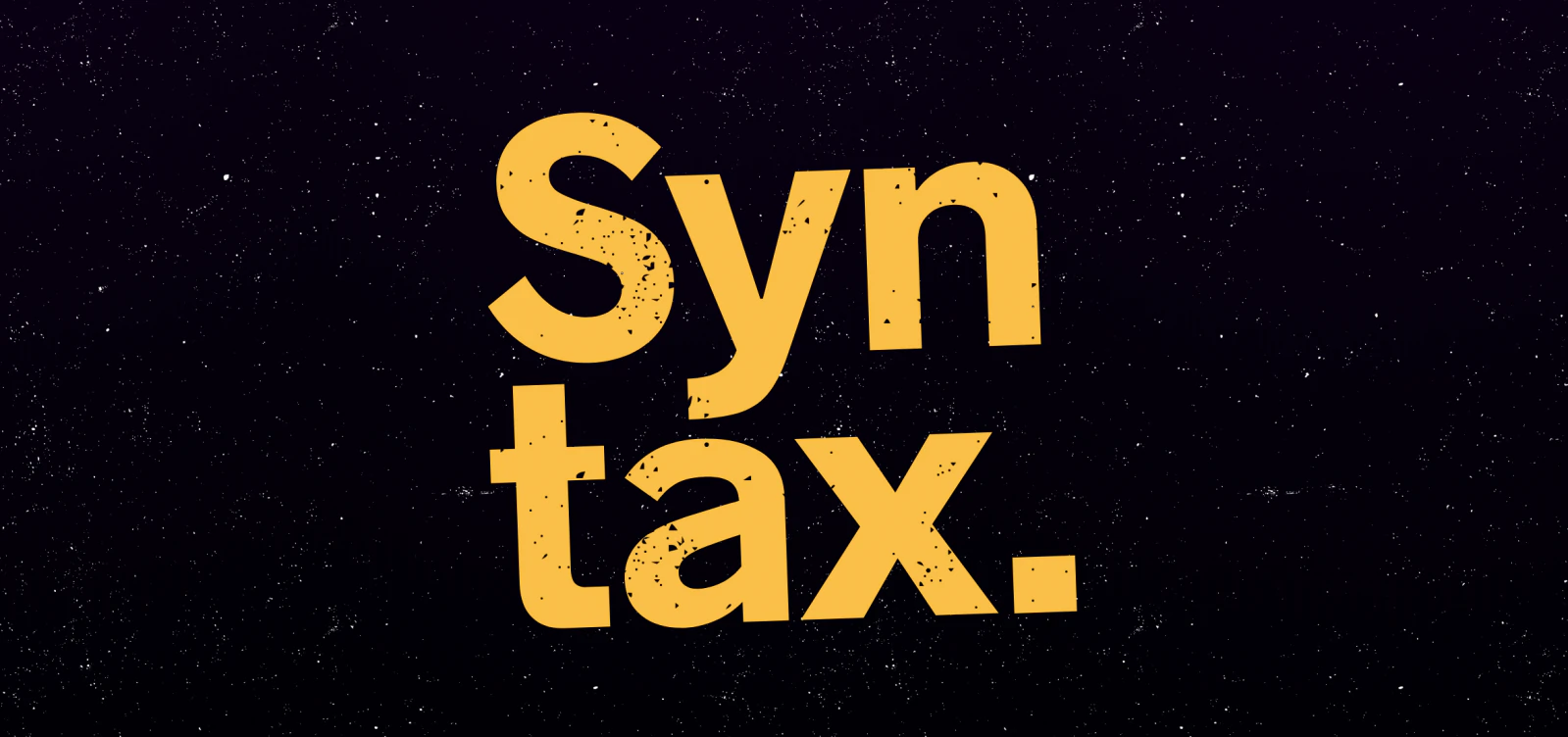They used to serve up some of the tastiest web dev content around. Wes Bos and Scott Tolinski—the affable duo behind the Syntax podcast—once dished out practical, approachable tutorials that helped developers “level up” their skills. Wes’s JavaScript 30 is a great example: a free, hands-on course that gave frontend newcomers a solid grip on the language.
I followed them both before they even teamed up. Back then, their content had real substance. When they launched Syntax, it was exciting. What a perfect mashup of personalities! Each episode explored timely, useful tools and topics relevant to modern web development. This was back in the LAMP stack days, when PHP, MySQL, and a little jQuery got the job done.
But somewhere along the way, the show lost its grounding.
Maybe it was the rise of the JAMstack. Maybe it was the need to keep things fresh week after week. But over time, Syntax became a whirlwind of frameworks, fads, and fleeting hype. React, Svelte, Vite, Next.js, Nuxt—it started to feel like a rotating buffet of build tools and abstractions. Static site generators were the future—until they weren’t. And then they were again. The pendulum never stopped swinging.
It all started to feel less like practical advice and more like chasing shiny objects.
Meanwhile, browsers were evolving in meaningful ways. Native APIs got better. CSS caught up. JavaScript matured. jQuery became obsolete—not because we added more layers on top, but because the native platform finally delivered. Yet somehow, the “framework industrial complex” doubled down, piling abstraction upon abstraction. Instead of embracing the improvements, the scene built ever-higher scaffolding on top of what was already solid.
Personally, I found liberation in sticking to basics. Modern HTML, CSS, and vanilla JavaScript (via TypeScript) gave me everything I needed. But increasingly, the Syntax podcast felt like it was complicating a field that was getting simpler.
Then came the Sentry acquisition. Sentry—a company that sells tools to track and fix bugs in your code—now owned a podcast that (intentionally or not) encouraged a development style ripe for bugs. Layers of dependencies, brittle build chains, third-party everything… of course you’d need a service to monitor that mess.
And that’s when it clicked: Sentry benefits when development is fragile and confusing. Their business model thrives on the chaos the framework ecosystem creates. The more developers struggle, the more Sentry gains.
Every now and then, the guys would acknowledge the madness of it all and briefly nod toward a simpler, standards-based approach—one that many of us have long seen as the most practical and performant way to build for the web. But then they’d pivot right back to the latest framework du jour, spending most of the episode digging into that instead. With so many developers now off in the weeds, there’s no shortage of material about how to get back on track. But I doubt their sponsor would appreciate that direction.
So, after years of loyal listening, I stopped. I found myself skipping through episodes—and sometimes entire shows (“React Web Components” again?). I’ve managed to avoid React all these years, and honestly, I haven’t missed it. Every now and then, they’d share something genuinely useful—like championing Visual Studio Code back when many of us were still clinging to Sublime Text, unaware of what Microsoft had in the works. But the time-to-value ratio has tipped too far the wrong way. Today, I unsubscribed from the podcast and the YouTube channel. And yeah… I feel a little sad about that. The upside? I’m regaining some time for other things.
No hard feelings, though. I still really like Scott and Wes—just not what they talk about anymore. I’m looking for something different now: content grounded in the actual capabilities of the web, not buried under layers of abstraction. I want to hear from developers working directly with browsers, not battling them through the very abstractions they seem to celebrate. What a slog!
The future of the web isn’t about more layers. It’s about less.
